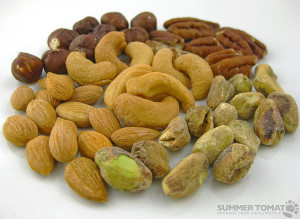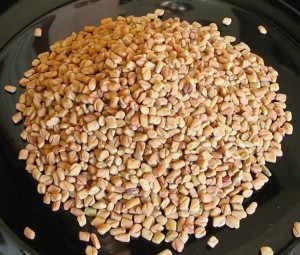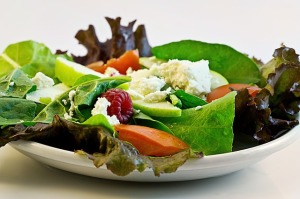Friday, February 17th, 2017 at
10:04 am
 It’s no secret that the exercise/diet double whammy is a healthier way to lose weight than diet alone. In addition to shedding fat, exercise improves your cardiovascular system, regulates blood sugar, builds muscle, regulates hormones, and strengthens bones—potentially warding off everything from arthritis to type 2 diabetes to osteoporosis to depression to heart complications.
It’s no secret that the exercise/diet double whammy is a healthier way to lose weight than diet alone. In addition to shedding fat, exercise improves your cardiovascular system, regulates blood sugar, builds muscle, regulates hormones, and strengthens bones—potentially warding off everything from arthritis to type 2 diabetes to osteoporosis to depression to heart complications.
But a new study out of the University of Cambridge in the U.K. brings these findings into sharper focus. Researchers concluded that while 337,000 Europeans die every year from obesity-related issues, 676,000 Europeans die from inactivity-related issues. In other words, you’re twice as likely to die from sitting around than from being overweight.
Read more here:: http://lowcarbmag.com/inactivity-may-be-deadlier-than-obesity/
Wednesday, February 8th, 2017 at
10:02 am
We all know that sugar causes health problems, weight gain and even premature ageing, but the idea of giving it up seems completely daunting.
Read more here:: http://lowcarbmag.com/sugar-free-diets-why-you-should-ditch-the-sweet-stuff/
Friday, September 23rd, 2016 at
6:19 pm
 Crohn’s disease is an autoimmune disorder that affects more than a million Americans. It is an inflammatory bowel disease in which the body attacks the intestines. There is currently no known cure for Crohn’s disease; current research focuses on controlling symptoms. There is no definitive medical or surgical therapy. The best we have is a plant-based diet, which has afforded the best relapse prevention to date.
Crohn’s disease is an autoimmune disorder that affects more than a million Americans. It is an inflammatory bowel disease in which the body attacks the intestines. There is currently no known cure for Crohn’s disease; current research focuses on controlling symptoms. There is no definitive medical or surgical therapy. The best we have is a plant-based diet, which has afforded the best relapse prevention to date.
Researchers got the idea to try a plant-based diet because diets rich in animal protein and animal fat have been found to cause a decrease in beneficial bacteria in the intestine. So, researchers designed a semi-vegetarian diet to counter that, and 100 percent of subjects stayed in remission the first year and 92 percent the second year. These results are far better than those obtained by current drugs, including new “biological agents” that can cost $40,000 a year, and can cause progressive multifocal leukoencephalopathy, a disabling and deadly brain disease. And a healthier diet appears to work better.
But what about preventing Crohn’s disease in the first place? A systematic review of the scientific literature on dietary intake and the risk of developing inflammatory bowel disease found that a high intake of fats and meat was associated with an increased risk of Crohn’s disease as well as ulcerative colitis, whereas high fiber and fruit intakes were associated with decreased risk of Crohn’s.
These results were supported more recently by the Harvard Nurse’s Health Study. Data revealed that long-term intake of dietary fiber, particularly from fruit, was associated with lower risk of Crohn’s disease. Women who fell into the highest long-term fiber consumption group had a 40 percent reduced risk, leading the accompanying editorial to conclude, “advocating for a high-fiber diet may ultimately reduce the incidence of Crohn’s disease.”
Read more here:: http://lowcarbmag.com/food-additives-that-may-make-our-gut-leaky/
Friday, September 23rd, 2016 at
10:19 am
 Stephan over at Whole Health Source wrote an interesting article a few years back alleging that paleolithic (and some extant) hunter-gatherers did (and do) utilize wild legumes.
Stephan over at Whole Health Source wrote an interesting article a few years back alleging that paleolithic (and some extant) hunter-gatherers did (and do) utilize wild legumes.
Stephan cites several examples:
The !Kung San from southern Africa, who in amenable regions eat large amounts of wild tsin beans. Tsin beans are about 33/33/33 fat/protein/carb, kind of a cross between a peanut and bean.
The Australian Aboriginals, who ate a lot of acacia seeds. These days, acacia fiber is a popular prebiotic supplement, but the whole seed was a legume providing ample protein, fat, and calories for the native inhabitants.
Read more here:: http://lowcarbmag.com/where-do-legumes-belong-in-the-primal-eating-plan/
Thursday, September 22nd, 2016 at
6:02 pm
 Zinc is a vital micronutrient that’s often overlooked. Zinc supports numerous enzymes in the body, strengthens the immune system, and helps with wound healing, synthesis of DNA, and normal growth and development during pregnancy, childhood, and adolescence.
Zinc is a vital micronutrient that’s often overlooked. Zinc supports numerous enzymes in the body, strengthens the immune system, and helps with wound healing, synthesis of DNA, and normal growth and development during pregnancy, childhood, and adolescence.
It’s associated with many problems when deficient, including thyroid abnormality, acne, infertility (mainly in men due to decreased sperm count), decreased immune system, thinning hair, rashes, loss of appetite, weight loss, growth impairment, delayed wound healing, and even depression.
Zinc is often used in the treatment of acute colds and macular (eye) degeneration. Medication like birth control pills, antibiotics, and over-the-counter antacids can impair zinc function over time.
See more…
Thursday, September 22nd, 2016 at
10:06 am
 Have you ever wondered why so many diets fail? After all, all of them come with certain guidelines and rules whose primary purpose is to ensure a person is on a right track. The reason a vast majority of diet plans prove to be unsuccessful is that dieters adopt or don’t get rid of unhealthy eating habits that undermine their effort. Throughout this article, you’re going to see how unhealthy food habit affects your diet plan.
Have you ever wondered why so many diets fail? After all, all of them come with certain guidelines and rules whose primary purpose is to ensure a person is on a right track. The reason a vast majority of diet plans prove to be unsuccessful is that dieters adopt or don’t get rid of unhealthy eating habits that undermine their effort. Throughout this article, you’re going to see how unhealthy food habit affects your diet plan.
Are unhealthy eating habits that common?
With a massive effort of various governmental agencies as well as non-profit organizations, during the past two decades, the consumption of healthy foods such as fruit and vegetables has improved. However, the healthy eating pattern has been outpaced by the increased consumption of unhealthy foods, according to a study published in the Lancet Global Health. The extensive study analyzed the diet quality in 187 countries, covering 4.5 billion adults or 88.7% of the global adult population. Dr. Fumiaki Imamura and a team of researchers at the University of Cambridge School of Clinical Medicine evaluated global consumption of key dietary items by nation, region, age, and gender in the period between 1990 and 2010. The scientists included 325 surveys to analyze the consumption data. The findings showed that older adults had better diet habits than younger adults. Furthermore, women had healthier eating habits than men. The scientists who worked on this study admit the results are quite worrying because increased intake of unhealthy foods outpaces increased consumption of healthy items across most world regions.
See more…
Tuesday, September 20th, 2016 at
6:16 pm
 The herbal remedy fenugreek could help reduce hot flashes in postmenopausal women, and improve their quality of life, according to new evidence.
The herbal remedy fenugreek could help reduce hot flashes in postmenopausal women, and improve their quality of life, according to new evidence.
Data published in Phytotherapy Research indicated that hot flashes decreased by 48% in women taking a standardised extract of fenugreek (Trigonella foenum-graecum). Other benefits of the herb were improved, including vaginal dryness, irritability, anxiety, night sweats, mood swings, insomnia, and headaches, wrote the researchers.
Read more…
Tuesday, September 20th, 2016 at
8:14 am
 Nutrition is one of the key, if not most important, areas to address in order to successfully manage high blood pressure, cholesterol and to maintain overall heart health. Here are some of the best whole foods that can improve these health metrics through a nourishing lifestyle.
Nutrition is one of the key, if not most important, areas to address in order to successfully manage high blood pressure, cholesterol and to maintain overall heart health. Here are some of the best whole foods that can improve these health metrics through a nourishing lifestyle.
Blood Pressure
It used to be thought that lowering sodium intake was the most important dietary change we could make to help improve blood pressure. However, we now know that there are a few other minerals that play a huge role in blood pressure control.
Read more…
Friday, April 15th, 2016 at
6:09 pm
 There is so much contradicting dietary advice out there, it can be hard to navigate what is true and what isn’t. Eat breakfast. Don’t eat breakfast. Ditch carbs. Become vegan. Who’s right? The truth is, there are a few fundamental rules to having a healthy relationship with your food that you should heed — and none of them tell you what types of foods to eat. Here are 5 universal dietary rules you should follow.
There is so much contradicting dietary advice out there, it can be hard to navigate what is true and what isn’t. Eat breakfast. Don’t eat breakfast. Ditch carbs. Become vegan. Who’s right? The truth is, there are a few fundamental rules to having a healthy relationship with your food that you should heed — and none of them tell you what types of foods to eat. Here are 5 universal dietary rules you should follow.
Continue reading…
Friday, April 15th, 2016 at
2:08 pm
 It’s no big secret that people have different taste preferences. Some of us gleefully devour arugula salads for lunch, while others won’t touch greens unless they’re baked and smothered in cheese (and sometimes not even then). Some people gulp down pumpkin spice lattes; others go into sugar shock after just one sip.
It’s no big secret that people have different taste preferences. Some of us gleefully devour arugula salads for lunch, while others won’t touch greens unless they’re baked and smothered in cheese (and sometimes not even then). Some people gulp down pumpkin spice lattes; others go into sugar shock after just one sip.
“When it comes to taste, each one of us is hardwired differently,” says Valerie Duffy, RD, professor of nutritional science at the University of Connecticut. And emerging research is showing that our flavor preferences may affect our waistlines and health in surprising ways. Check out the fascinating scoop on exactly what’s going on inside your mouth and how to tap your taste buds to dump unwanted pounds.
Continue reading…
 It’s no secret that the exercise/diet double whammy is a healthier way to lose weight than diet alone. In addition to shedding fat, exercise improves your cardiovascular system, regulates blood sugar, builds muscle, regulates hormones, and strengthens bones—potentially warding off everything from arthritis to type 2 diabetes to osteoporosis to depression to heart complications.
It’s no secret that the exercise/diet double whammy is a healthier way to lose weight than diet alone. In addition to shedding fat, exercise improves your cardiovascular system, regulates blood sugar, builds muscle, regulates hormones, and strengthens bones—potentially warding off everything from arthritis to type 2 diabetes to osteoporosis to depression to heart complications.
 Crohn’s disease is an autoimmune disorder that affects more than a million Americans. It is an inflammatory bowel disease in which the body attacks the intestines. There is currently no known cure for Crohn’s disease; current research focuses on controlling symptoms. There is no definitive medical or surgical therapy. The best we have is a plant-based diet, which has afforded the best relapse prevention to date.
Crohn’s disease is an autoimmune disorder that affects more than a million Americans. It is an inflammatory bowel disease in which the body attacks the intestines. There is currently no known cure for Crohn’s disease; current research focuses on controlling symptoms. There is no definitive medical or surgical therapy. The best we have is a plant-based diet, which has afforded the best relapse prevention to date. Stephan over at Whole Health Source wrote an interesting article a few years back alleging that paleolithic (and some extant) hunter-gatherers did (and do) utilize wild legumes.
Stephan over at Whole Health Source wrote an interesting article a few years back alleging that paleolithic (and some extant) hunter-gatherers did (and do) utilize wild legumes. Zinc is a vital micronutrient that’s often overlooked. Zinc supports numerous enzymes in the body, strengthens the immune system, and helps with wound healing, synthesis of DNA, and normal growth and development during pregnancy, childhood, and adolescence.
Zinc is a vital micronutrient that’s often overlooked. Zinc supports numerous enzymes in the body, strengthens the immune system, and helps with wound healing, synthesis of DNA, and normal growth and development during pregnancy, childhood, and adolescence. Have you ever wondered why so many diets fail? After all, all of them come with certain guidelines and rules whose primary purpose is to ensure a person is on a right track. The reason a vast majority of diet plans prove to be unsuccessful is that dieters adopt or don’t get rid of unhealthy eating habits that undermine their effort. Throughout this article, you’re going to see how unhealthy food habit affects your diet plan.
Have you ever wondered why so many diets fail? After all, all of them come with certain guidelines and rules whose primary purpose is to ensure a person is on a right track. The reason a vast majority of diet plans prove to be unsuccessful is that dieters adopt or don’t get rid of unhealthy eating habits that undermine their effort. Throughout this article, you’re going to see how unhealthy food habit affects your diet plan. The herbal remedy fenugreek could help reduce hot flashes in postmenopausal women, and improve their quality of life, according to new evidence.
The herbal remedy fenugreek could help reduce hot flashes in postmenopausal women, and improve their quality of life, according to new evidence. Nutrition is one of the key, if not most important, areas to address in order to successfully manage high blood pressure, cholesterol and to maintain overall heart health. Here are some of the best whole foods that can improve these health metrics through a nourishing lifestyle.
Nutrition is one of the key, if not most important, areas to address in order to successfully manage high blood pressure, cholesterol and to maintain overall heart health. Here are some of the best whole foods that can improve these health metrics through a nourishing lifestyle.

